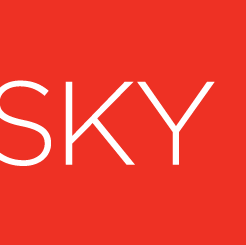Across many different industries, experts are speculating about the potential impact of blockchain technology. It’s hard to overstate how much interest it’s garnered, with major publications dedicating issues to it, and conferences being held all over the world. Despite the hype, however, many are still unclear about what blockchain is and how it could be poised to disrupt their industry. The blockchain is simply a digital structure—a way of encoding data, or information—that lacks a central authority. Once a block—or a packet of information—is attached to the blockchain, it is nearly impossible to change it. This is one of the reasons people are excited about the blockchain: it’s being touted as a very secure structure. In many cases, people are learning about the blockchain through cryptocurrencies, in which transactional data is stored on the blockchain. Since there is no central authority or “bank” for cryptocurrency, some argue that it is less susceptible to leaks, fraud, scamming, and so on.
Financial data is simply one of the categories of information that can be stored using blockchain. Since its main selling point is security, many have suggested storing other kinds of information, like citizenship, medical records, or housing documents. Forward-thinkers who work in recruiting are also researching ways that they might be able to make use of the blockchain.
How blockchain can be used by recruiters
Although it’s gotten less hype than cryptocurrency, blockchain is currently being situationally deployed by recruiters. Since the blockchain is a secure way to track information in a virtually-immutable, distributed structure, one of the key ways recruiters believe it might be useful is in storing hiring data in the blockchain. This could include work experience, educational qualifications, references, letters of recommendation and more. Many recruiters started taking this more seriously in 2017, when MIT, in partnership with Learning Machine, a local startup, gave out digital diplomas to their graduating class stored on the blockchain. This illuminates an important aspect of blockchain and recruitment: the widespread adoption of blockchain technology by HR departments is heavily dependent on the adoption of new standards by other companies and academic institutions. It may seem like a tall order to overhaul the recruiting industry, but standards are always changing. There was a time when digital resumes were simply an “emerging technology,” too. Other technologies transform recruitment and adopt new standards that are better suited to the blockchain. Aworker, an experimental platform for both candidates and recruiters doesn’t use typical resume structures. They essentially create new criteria for hiring that already “work” on the blockchain.
What could slow down the disruption?
There’s no getting around it—change happens faster than you think, but overall, we’re more than a few years out from widespread adoption. The necessity for many different institutions to get on board for blockchain to “work” is only one of the challenges it faces in recruitment. One other challenge is that, although recruitment requires a lot of paperwork, it doesn’t only require paperwork. Veteran HR professionals will tell you that despite the wealth of digital tools available to recruiters, there’s just no replacing that face-to-face encounter to suss out whether or not a candidate is a great fit. Employment history is often complicated—in many cases, the resume doesn’t tell the whole story. Just like chatbots, ATS, and other amazing technologies that haven’t replaced the face-to-face encounter, chances are, neither will the blockchain.
The other notable impediment to blockchain technology in recruitment is simple: it may or may not be legal. Legislation like Europe’s GDPR and other entrenched standards and practices that govern how we encode, exchange, and make information available will likely have to change for blockchain to be adopted. This doesn’t mean recruiters shouldn’t speculate and explore possibilities, but if you are, you should make sure that you’re not flouting long-established rules.

